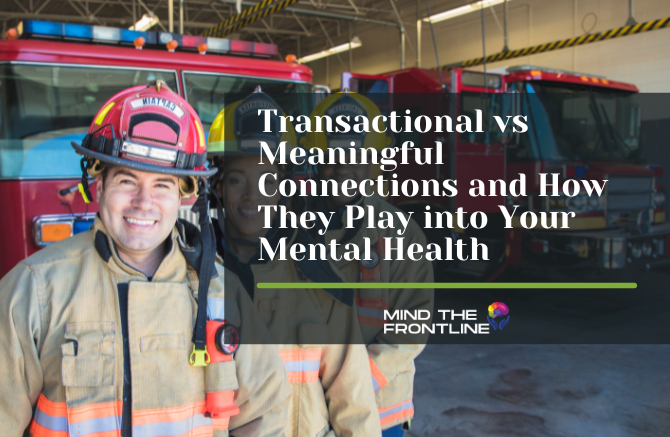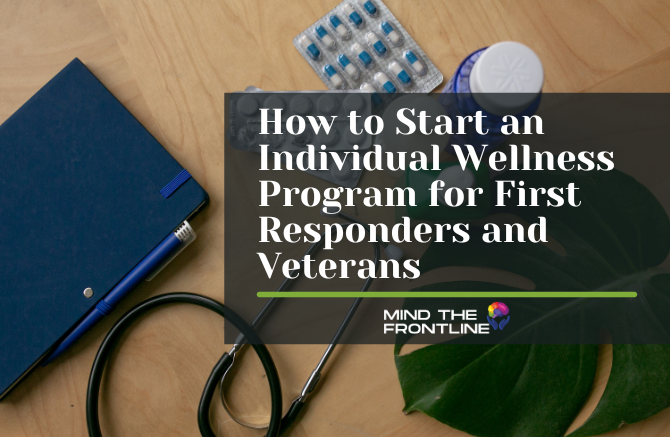The 4 Pillars of Self Care: Physical, Emotional, Mental, and Spiritual for First Responders and Veterans
Unlock the secrets to holistic well-being by mastering the four pillars of self-care, crucial for first responders and veterans.
5 min read
 Chris Smetana, AS, FP-C, CCP-C, NRP | Founder/President
:
Jan 15, 2025
Chris Smetana, AS, FP-C, CCP-C, NRP | Founder/President
:
Jan 15, 2025

Discover how different types of connections affect the mental health of first responders and veterans, and learn why meaningful relationships are crucial for emotional well-being.
Transactional connections are relationships primarily focused on the exchange of goods, services, or favors with the primary goal of receiving something in return. These connections are often characterized by a quid pro quo nature, where each party is primarily concerned with what they can gain from the interaction. Typically, these relationships are short-term and self-serving, with minimal emotional investment from either party. For instance, in a workplace scenario, a colleague might agree to cover your shift under the condition that you will reciprocate by covering theirs in the future. This type of arrangement is based on mutual benefit rather than emotional connection or personal interest in each other's well-being.
While transactional connections can be useful in professional settings, especially in high-stress environments like emergency medical services, where efficiency and quick exchanges are often necessary, they tend to lack the depth and emotional support that meaningful connections provide. In such high-pressure fields, the ability to rely on colleagues for practical support can be crucial; however, these relationships often remain superficial and do not extend beyond the immediate professional needs. As a result, these relationships often do not contribute significantly to one's emotional well-being, as they fail to offer the comfort, understanding, and genuine care that are essential for mental health. Without the emotional depth, individuals may find themselves feeling isolated or unsupported during challenging times, highlighting the limitations of transactional connections in fostering a sense of community and belonging.

Meaningful connections, on the other hand, are built on a foundation of trust, mutual respect, and genuine care for one another, forming the bedrock of strong, supportive relationships. These connections transcend the superficiality of mere exchanges of favors, diving into the realm of sharing personal thoughts, feelings, and experiences. In such relationships, individuals feel safe to open up and be vulnerable, knowing they are met with empathy and understanding. For instance, a meaningful connection might involve a first responder confiding in a close friend about their personal struggles, such as the emotional toll of witnessing traumatic events, and receiving not only emotional support but also practical advice and encouragement in return. This exchange fosters a deep sense of trust and reinforces the bond between them.
These deeper relationships are crucial for mental health as they provide a robust support system that can help individuals navigate the complex emotional challenges associated with high-stress professions. In environments where stress and trauma are prevalent, having someone to lean on can make a significant difference. Meaningful connections offer a sense of belonging and understanding, creating a safe space where individuals feel valued and heard. This sense of community and shared experience can significantly contribute to one's overall well-being, enhancing resilience and providing the emotional sustenance needed to face daily challenges. By nurturing these connections, individuals can build a network of support that not only aids in coping with stress but also enriches their lives with warmth and companionship.
-Jan-12-2025-07-14-13-3763-PM.png?width=401&height=262&name=Blog%20Section%20Pictures%20(1)-Jan-12-2025-07-14-13-3763-PM.png)
The type of connections you maintain can have a profound impact on your mental health, influencing not only your emotional state but also your overall well-being and ability to cope with life's challenges. Transactional connections, while sometimes necessary for practical reasons, can lead to feelings of isolation and loneliness if they are the only types of relationships you have. This is because these connections often lack the emotional depth needed to provide genuine support during difficult times. In such relationships, interactions are primarily driven by the exchange of goods or services, leaving little room for emotional engagement or personal investment. As a result, individuals may find themselves feeling unsupported and disconnected, especially during moments of personal crisis or stress, when emotional support is most needed.
In contrast, meaningful connections can significantly enhance mental health by offering emotional support, reducing stress, and providing a sense of community and belonging. These relationships are characterized by mutual trust, empathy, and a genuine interest in each other's well-being, creating a supportive environment where individuals feel valued and understood. For first responders and veterans, who often face high-stress situations and traumatic experiences, having a network of meaningful connections can be a critical factor in maintaining mental health and resilience. Such connections provide a safe space to share experiences, express emotions, and receive encouragement and advice, which can be invaluable in navigating the emotional challenges associated with their professions. By fostering these deep, supportive relationships, individuals can build a robust support system that not only aids in coping with stress but also enriches their lives with warmth, companionship, and a sense of shared purpose.
-Jan-12-2025-07-15-39-4784-PM.png?width=401&height=262&name=Blog%20Section%20Pictures%20(2)-Jan-12-2025-07-15-39-4784-PM.png)
Fostering meaningful relationships in high-pressure environments such as emergency medical services can be difficult, yet it is crucial for sustaining long-term mental health. A practical method is to dedicate time and effort to cultivating these connections. This could include regularly reaching out to colleagues, exchanging experiences, and providing support.
Additionally, engaging in peer support groups or professional counseling services that emphasize building strong, supportive networks can be beneficial. These groups offer a secure environment to share experiences and establish trust with others who comprehend the specific challenges of your field.
-Jan-12-2025-07-16-35-6561-PM.png?width=401&height=262&name=Blog%20Section%20Pictures%20(3)-Jan-12-2025-07-16-35-6561-PM.png)
Make time for regular check-ins with close friends or trusted colleagues. These conversations are not just casual chats; they are opportunities to deepen your understanding of each other's lives, share personal experiences, and offer mutual support. By prioritizing these interactions, you can maintain and strengthen your connections, ensuring that you have a reliable support system in place during both good times and challenging moments.
Participate in peer support groups or counseling sessions where you can openly share your experiences, challenges, and triumphs with others who understand your unique circumstances. These gatherings provide a safe and supportive environment to express your feelings, gain new perspectives, and build a network of support that can be invaluable in times of need. Engaging with others in similar situations can foster a sense of camaraderie and belonging, which is essential for emotional resilience.
Focus on open and honest communication. This means not only sharing your thoughts and feelings with those you trust but also being an active listener who is willing to offer support and understanding in return. By cultivating an environment of transparency and empathy, you can build stronger, more meaningful relationships that are based on mutual respect and trust. Such communication can help resolve conflicts, strengthen bonds, and create a foundation for lasting connections.
Set boundaries with transactional relationships to ensure they do not dominate your social interactions. Recognize the importance of balancing these practical connections with more meaningful ones, and be mindful of how much time and energy you invest in each. By establishing clear boundaries, you can protect your emotional well-being and prioritize relationships that offer genuine support and enrichment, rather than those that are solely based on exchanges of favors or services.
Practice self-care and stress management techniques to maintain your own well-being, making it easier to invest in meaningful relationships. This involves taking time to engage in activities that rejuvenate your mind and body, such as exercise, meditation, or hobbies that bring you joy. By managing stress effectively and prioritizing your own health, you can be more present and available for others, allowing you to nurture and sustain the meaningful connections that are vital for your emotional health and overall happiness.
-Jan-12-2025-07-17-32-7911-PM.png?width=401&height=262&name=Blog%20Section%20Pictures%20(4)-Jan-12-2025-07-17-32-7911-PM.png)
Don't Suffer Alone!
Get your copy of Back in Service: Frontline Stories of Resilience. This collection includes stories from frontline workers and their families from across the country with each author sharing a unique story about how their career has impacted them and details on how they have grown into a rejuvenated lifestyle of resilience.

Explore many valuable First Responder Mental Health and Wellness resources on Mind the Frontline's online platform. Discover the link below to access a wide range of support and information tailored specifically for first responders.
Additional Mind the Frontline Resource's
Stay connected with Mind the Frontline on Facebook & LinkedIn.
$50 off code:frontline40
-3.png)
Unlock the secrets to holistic well-being by mastering the four pillars of self-care, crucial for first responders and veterans.

Discover how to create a comprehensive wellness program tailored to the unique needs of first responders and veterans, ensuring their physical and...
-1.png)
Explore the crucial role of emotional intelligence in enhancing the resilience of first responders and supporting their mental well-being.